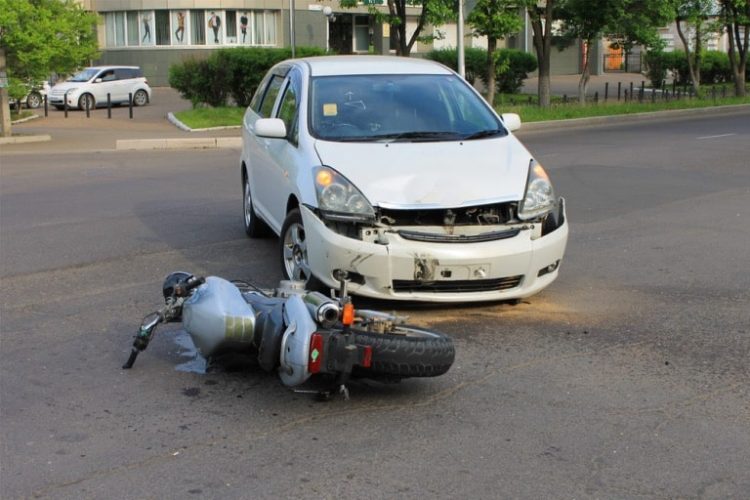Politics
Navigating Responsibility: Understanding Motorcycle Accident Fault

Motorcycle accidents often lead to complex questions regarding responsibility, especially in busy areas like Cape Coral. With a mix of seasonal traffic and a network of coastal roads, the conditions can challenge even the most skilled riders. Determining fault in these situations is critical for those seeking compensation or clarity after a crash.
Understanding how fault is assessed involves several essential steps, from evidence collection at the scene to interpretations of traffic laws. Engaging with a local motorcycle accident lawyer can significantly aid individuals in navigating these complexities.
Key Factors in Establishing Fault
Evidence collection is crucial immediately after an accident. Investigators look for photos, eyewitness statements, and video recordings to piece together the events leading up to the collision. Skid marks and vehicle damage can indicate what transpired prior to impact, while police often document the scene for both insurance purposes and legal proceedings.
Another significant aspect is the application of traffic laws. If either the motorist or motorcycle rider runs a red light, this violation may heavily influence the determination of fault. Speeding or failing to yield also carry substantial weight in these evaluations. Police reports play a vital role, as they detail any citations issued at the crash site.
Witness statements are valuable in reconstructing the accident chronology. Bystanders provide independent observations that can confirm or contradict other evidence collected. Insurance companies frequently reach out to these witnesses to verify accounts.
The Role of Expert Analysis and Insurance Companies
In some cases, accident reconstruction specialists may be called in to analyze the scene using principles from mathematics, physics, and engineering. Their findings can clarify vehicle speeds, braking points, and impact locations, providing critical insights that may identify the responsible party.
Determining fault can also involve understanding contributory and comparative negligence. In some jurisdictions, contributory negligence laws assert that if an injured party is found even slightly at fault, they may lose the right to compensation. Conversely, comparative negligence allows for shared responsibility, where fault is divided according to each party’s actions.
Insurance companies conduct their investigations to establish fault as well. They review police reports, interview witnesses, and examine physical evidence. The efficiency of these investigations can directly affect claim approvals and compensation amounts.
Motorcycle-specific factors can also influence liability. The smaller size of motorcycles makes them less visible to other drivers, increasing the risk of accidents. Road conditions, such as gravel and potholes, can further complicate situations. Additionally, the use of protective gear, like helmets and reflective clothing, may factor into evaluations of rider responsibility.
Common causes of motorcycle accidents include left-turn incidents, rapid lane changes, and distracted driving. Drivers often misjudge motorcycle speeds or overlook blind spots, creating hazardous situations. Identifying the root causes of accidents is essential for determining liability.
Legal proceedings sometimes become necessary to resolve disputes about fault. Lawyers gather evidence, consult experts, and present cases in court, allowing all parties to share their perspectives. The judicial process ultimately determines final responsibility for the accident.
In conclusion, establishing fault in motorcycle accidents requires thorough assessments of evidence, testimonies, and applicable laws. Prompt investigations driven by expert analysis can lead to fair outcomes for everyone involved. Understanding these factors not only empowers individuals to defend their rights but also contributes to safer riding experiences.
-

 Top Stories4 weeks ago
Top Stories4 weeks agoNew ‘Star Trek: Voyager’ Game Demo Released, Players Test Limits
-

 World4 weeks ago
World4 weeks agoGlobal Air Forces Ranked by Annual Defense Budgets in 2025
-

 World4 weeks ago
World4 weeks agoMass Production of F-35 Fighter Jet Drives Down Costs
-

 Science4 weeks ago
Science4 weeks agoTime Crystals Revolutionize Quantum Computing Potential
-

 World4 weeks ago
World4 weeks agoElectrification Challenges Demand Advanced Multiphysics Modeling
-

 Business4 weeks ago
Business4 weeks agoGold Investment Surge: Top Mutual Funds and ETF Alternatives
-

 Top Stories4 weeks ago
Top Stories4 weeks agoDirecTV to Launch AI-Driven Ads with User Likenesses in 2026
-

 Lifestyle4 weeks ago
Lifestyle4 weeks agoDiscover Reese Witherspoon’s Chic Dining Room Style for Under $25
-

 Entertainment4 weeks ago
Entertainment4 weeks agoFreeport Art Gallery Transforms Waste into Creative Masterpieces
-

 Health4 weeks ago
Health4 weeks agoGavin Newsom Critiques Trump’s Health and National Guard Plans
-

 Business4 weeks ago
Business4 weeks agoUS Government Denies Coal Lease Bid, Impacting Industry Revival Efforts
-

 Lifestyle4 weeks ago
Lifestyle4 weeks agoLia Thomas Honored with ‘Voice of Inspiration’ Award at Dodgers Event









